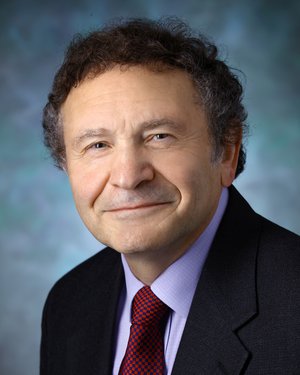Research Lab Results
-
Jun O. Liu Laboratory
The Jun O. Liu Laboratory tests small molecules to see if they react in our bodies to find potential drugs to treat disease. We employ high-throughput screening to identify modulators of various cellular processes and pathways that have been implicated in human diseases from cancer to autoimmune diseases. Once biologically active inhibitors are identified, they will serve both as probes of the biological processes of interest and as leads for the development of new drugs for treating human diseases. Among the biological processes of interest are cancer cell growth and apoptosis, angiogenesis, calcium-dependent signaling pathways, eukaryotic transcription and translation.
-
Systems Biology Laboratory
The Systems Biology Lab applies methods of multiscale modeling to problems of cancer and cardiovascular disease, and examines the systems biology of angiogenesis, breast cancer and peripheral artery disease (PAD). Using coordinated computational and experimental approaches, the lab studies the mechanisms of breast cancer tumor growth and metastasis to find ways to inhibit those processes. We use bioinformatics to discover novel agents that affect angiogenesis and perform in vitro and in vivo experiments to test these predictions. In addition we study protein networks that determine processes of angiogenesis, arteriogenesis and inflammation in PAD. The lab also investigates drug repurposing for potential applications as stimulators of therapeutic angiogenesis, examines signal transduction pathways and builds 3D models of angiogenesis. The lab has discovered over a hundred novel anti-angiogenic peptides, and has undertaken in vitro and in vivo studies testing their activity under different conditions. We have investigated structure-activity relationship (SAR) doing point mutations and amino acid substitutions and constructed biomimetic peptides derived from their endogenous progenitors. They have demonstrated the efficacy of selected peptides in mouse models of breast, lung and brain cancers, and in age-related macular degeneration.
-
The Pathak Lab
The Pathak lab is within the Division of Cancer Imaging Research in the Department of Radiology and Radiological Science. We develop novel imaging methods, computational models and visualization tools to ‘make visible’ critical aspects of cancer, stroke and neurobiology. Our research broadly encompasses the following areas: Functional and Molecular Imaging; Clinical Biomarker Development; Image-based Systems Biology and Visualization and Computational Tools. We are dedicated to mentoring the next generation of imagers, biomedical engineers and visualizers. Additional information can be found at www.pathaklab.org or by emailing Dr. Pathak. -
Brain Tumor Laboratory
At the brain tumor laboratory, Henry Brem, M.D. and Betty Tyler, along with more than 350 trainees, have conducted scientific research, contributed to scientific literature, amended clinical practice, and illuminated new pathways for improving clinical outcomes.
The laboratory has advanced the understanding of gene therapy, angiogenesis, intracranial implantation of biodegradable polymers to treat malignant glioma, tumor genetics and proteomics, microchip drug delivery and drug resistance studies. Dr. Brem and his colleagues have designed and led many multi-institutional clinical trials to improve and expand the range of therapeutic options for patients with brain tumors. -
Dmitri Artemov Lab
The Artemov lab is within the Division of Cancer Imaging Research in the Department of Radiology and Radiological Science. The lab focuses on 1) Use of advanced dynamic contrast enhanced-MRI and activated dual-contrast MRI to perform image-guided combination therapy of triple negative breast cancer and to assess therapeutic response. 2) Development of noninvasive MR markers of cell viability based on a dual-contrast technique that enables simultaneous tracking and monitoring of viability of transplanted stems cells in vivo. 3) Development of Tc-99m and Ga-68 angiogenic SPECT/PET tracers to image expression of VEGF receptors that are involved in tumor angiogenesis and can be important therapeutic targets. 4) Development of the concept of “click therapy” that combines advantages of multi-component targeting, bio-orthogonal conjugation and image guidance and preclinical validation in breast and prostate cancer models.


